On the eve of CES Asia, Chinese new energy vehicle manufacturer BYTON has just unveiled its first sedan concept car – the BYTON K-Byte Concept. Following its 49-inch center console screen, BYTON has equipped its K-Byte Concept with a 360-degree laser radar system which covers the entire vehicle. In addition, BYTON, which just completed a $500M Series B funding, shared information on the company’s preparation for production, strategic cooperation, financing, and business models at the event.
BYTON K-Byte Concept Debut
Firstly, about BYTON’s naming strategy. The previously released SUV concept car was called BYTON M-Byte Concept, while the sedan concept car released today is called BYTON K-Byte Concept. BYTON stands for “Bytes on Wheels”, with “Byte” being a data unit of computers. In short, it means “smart vehicles”.
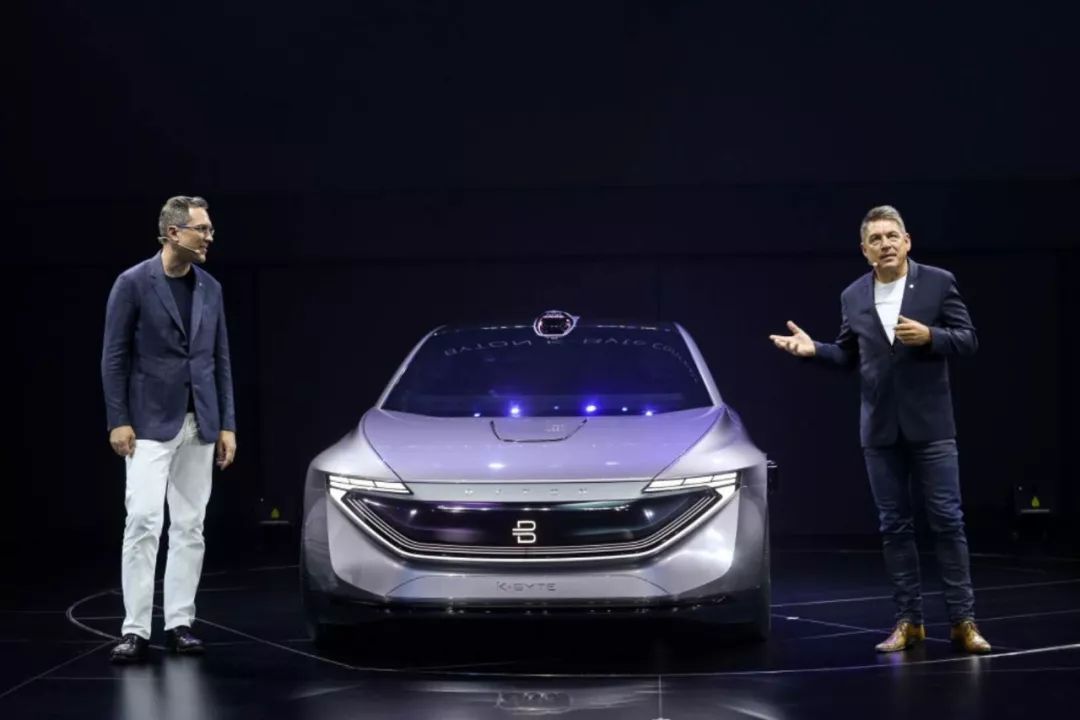
Here are the highlights of the K-Byte:
The K-Byte is a three-box sedan that continues BYTON’s “family design language,” with side glider design for better aerodynamics.
The front face is equipped with upgraded BYTON Smart Surfaces, with a 3D layout of the light strip for a more three-dimensional visual effect. BYTON Front Blade design for daytime running lights offers high recognition.
The roof and rear-view camera (yes, no rearview mirror) are equipped with a set of laser radar systems that support 360-degree perception coverage of the vehicle’s surroundings.
The design part is not presented here, let’s just view the pictures.
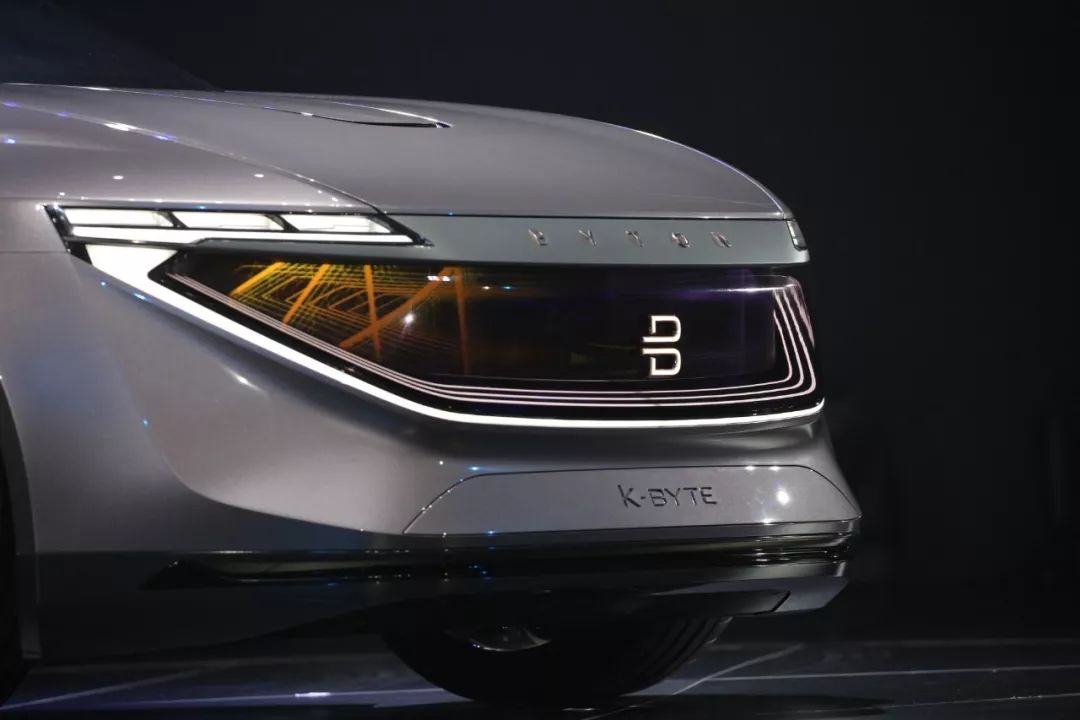
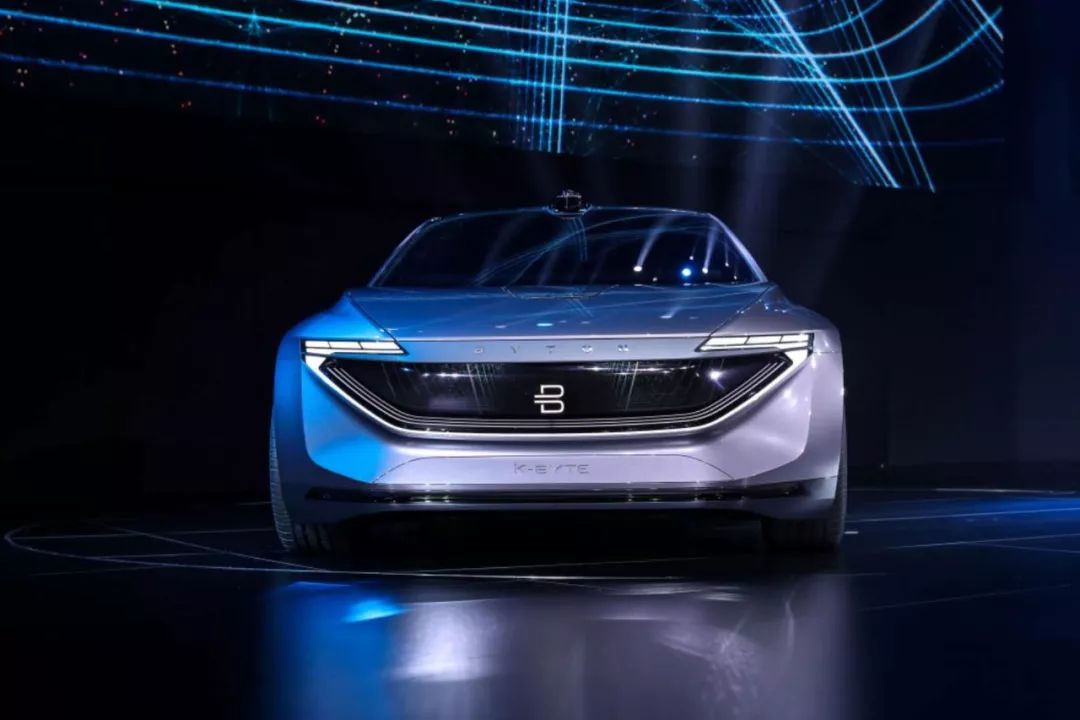
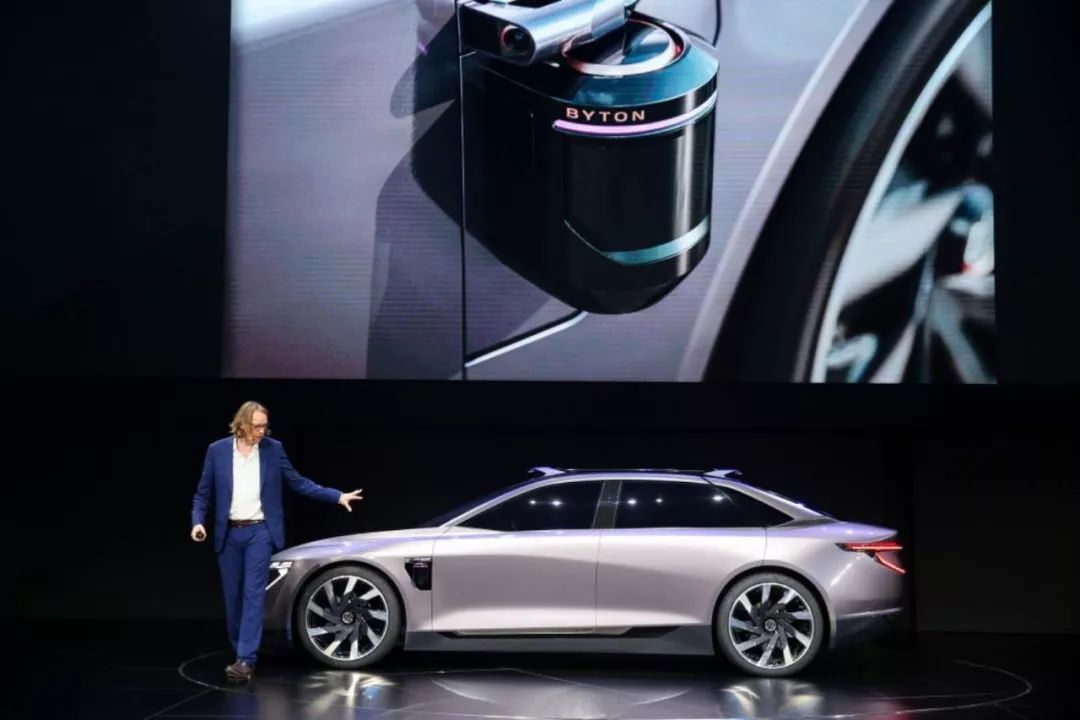 ## About LiDAR
## About LiDAR
Let’s talk about the topic of LiDAR. The K-Byte roof is equipped with the BYTON LiBow bow-shaped LiDAR system, which integrates forward-looking and rear-looking LiDAR. The BYTON LiGuards side LiDAR system located below the rearview camera is also scalable. When the vehicle is in automatic driving mode, it expands outward to ensure driving safety, while it automatically retracts during human driving and parking scenes.
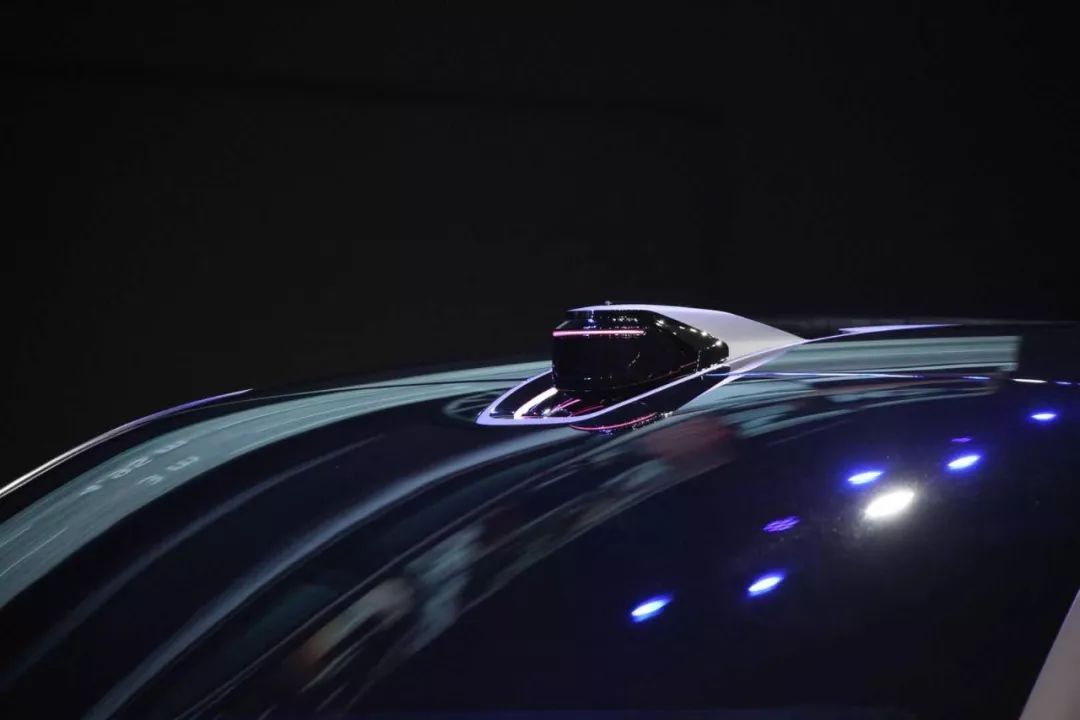
If the single four-line LiDAR on the Audi A8 is considered child’s play, then the K-Byte’s LiDAR equipment is clearly aimed at L4 level autonomous driving. Dai Lei said that BYTON hopes to become the first manufacturer to mass-produce L4 level autonomous driving cars.
BYTON previously announced its collaboration with Aurora, a Silicon Valley autonomous driving start-up, to jointly develop L4 level autonomous driving technology. The three founders of Aurora are former Google Waymo CTO, former Uber autonomous driving perception leader and former Tesla Autopilot responsible person. In addition to BYTON, car companies such as Volkswagen and Hyundai are also working with Aurora.
BYTON plans to jointly create a fleet of prototype vehicles capable of L4 level autonomous driving with Aurora by the end of 2020, and test these vehicles to prepare for mass production.
At the press conference, Bi Fukang announced that BYTON and Baidu are collaborating to develop in-car voice assistants. The PPT also mentioned collaboration in the field of autonomous driving. However, I checked the Baidu Apollo official website and BYTON does not seem to be on the list of ecosystem partners, so it is not clear what the specific form of the collaboration will be.
Finally, let’s talk about performance. At the previous SUV launch, BYTON did not mention the 0-100 km/h acceleration or the three-electric specifications. The CEO, Dai Lei, said that “excellent performance is a foundation, but it is not BYTON’s core.” According to the SUV’s battery pack specifications of 71/90 kWh and motor power of 200/350 kW, we don’t need to worry too much about K-Byte’s performance.
Sales and Fan Operation
Feng Changge, the chairman of luxury car distributor Harmony Auto and an early investor of BYTON, began to frequently appear in BYTON’s official announcements as “BYTON co-founder and co-chairman”. At today’s press conference, BYTON announced its sales layout and offline store expansion plan.
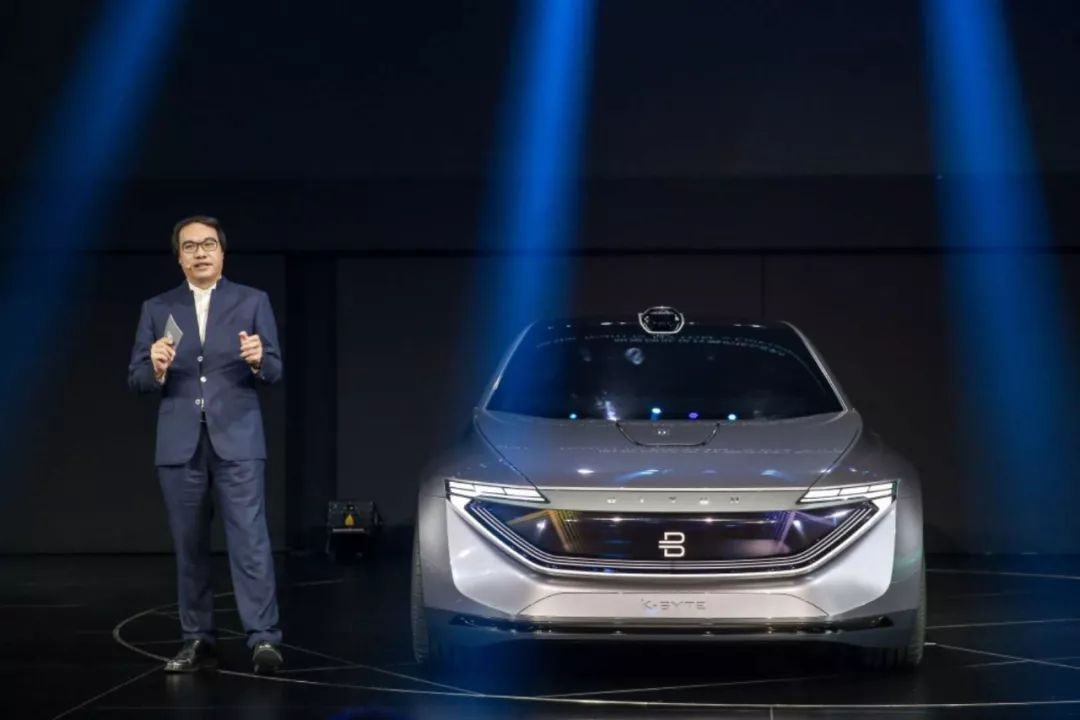 First of all, it should be noted that BYTON will adopt a direct sales model. The first BYTON store will open in Shanghai in the fourth quarter of this year.
First of all, it should be noted that BYTON will adopt a direct sales model. The first BYTON store will open in Shanghai in the fourth quarter of this year.
However, in the subsequent landing process of the brand store, BYTON will mainly adopt a model of cooperation with retail partners:
BYTON has established processes and standards, and is also the direct contracting party of customers.
Retail partners are responsible for providing infrastructure and personnel, and operate brand stores in the form of agents.
By the end of next year, BYTON plans to open 25-30 brand stores in China, mainly in first-tier and second-tier cities, and will then enter the European and North American markets.
Interestingly, BYTON mentioned that brand stores will be designed from the perspective of consumers to create different functional areas, allowing customers to “meet BYTON, explore products, make friends, and gain new knowledge” here. Hmm, it sounds familiar. Do new car companies all do this when it comes to operating users?
Of course, BYTON still has some differentiated ideas. It will launch the “BYTON Maker Program.” Dozens of relatively professional car owners will be selected from the first batch of pre-order owners as “BYTON Chief Makers”, and they will participate deeply in the design process of BYTON products and services, exchanging ideas with BYTON engineers and designers face-to-face. They will also be the first outsiders to see the embryonic form of BYTON products.
In early July, BYTON will invite a group of Chief Makers to the design center in Munich, Germany to participate in in-depth discussions on exterior and interior design. Friends, it’s time to catch up on car design knowledge and wait for my good news.
Preparation for Mass Production
Finally, let’s talk about mass production. BYTON SUV will be mass produced at the end of 2019, and the mass production car of the sedan will be launched in 2021.
According to the official statement, the construction of BYTON’s Nanjing plant is progressing smoothly. Of course, like every new car company, elements such as “Made in China 2025”, “Industry 4.0”, “Environmental protection and safety standards”, and “support for highly personalized custom production” are indispensable.
On April 1st, the trial production workshop containing the welding line and final assembly line was completed. Currently, the first batch of engineering trial samples of BYTON has been offline, and hundreds of engineering trial samples will be delivered by the end of this year. Relevant testing work will also be carried out as planned.
In October of this year, the four major process plants of stamping, welding, painting, and final assembly in the Nanjing plant will be completed and capped, and equipment will be stationed. Pre-production will be invested in the first half of 2019.
Summary
Starting from the 49-inch screen, controversy has followed BYTON. Without mentioning anything else, the more avant-garde second car has already been unveiled before the factory is even built. The controversy over this strategy may be even greater than that of local carmakers such as NIO and WM Motor, not to mention the cars and homes that have been quiet for many years.On the one hand, BYTON is gaining increasing recognition, backed by the investment of two industrial chain investors, FAW and CATL, with a total financing amount of $750 million. Its orderly product development, production pace and sales layout indicate that BYTON is striving to take a seat at the center of the table.
In my article “Seven Questions to BYTON’s Co-founder Dr. Carsten Breitfeld”, I pointed out that people’s biggest doubt about BYTON lies in the fact that two German-born executives established a company rooted in the Chinese market. The most remarkable point, however, is that BYTON seems to understand its weaknesses very well, and the management team has been working hard to understand and learn how to “deal with Chinese people”.
Of course, having a coherent business logic is one thing, and efficient and non-deformed execution and positive market feedback are another.
Where will BYTON go in the future? Let’s wait and see in 2019.
After $500 Million Series B Financing, Taking Stock of the Forces behind BYTON


This article is a translation by ChatGPT of a Chinese report from 42HOW. If you have any questions about it, please email bd@42how.com.
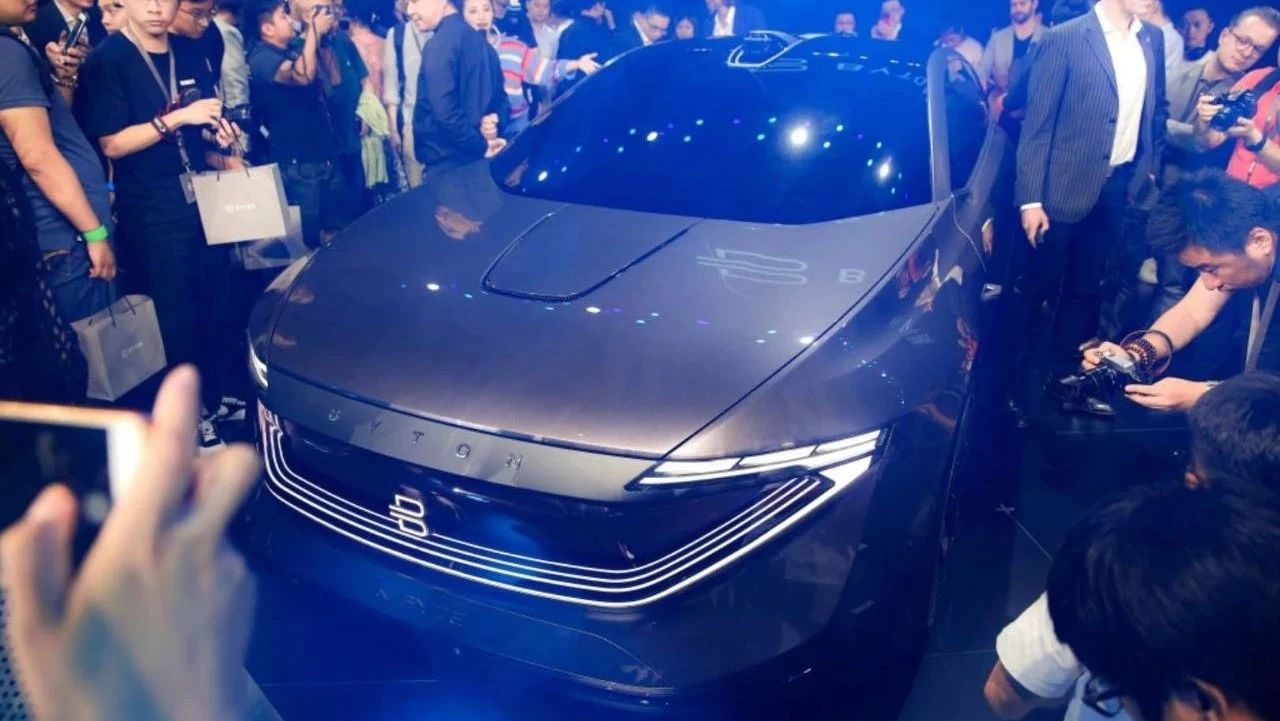
 *
*